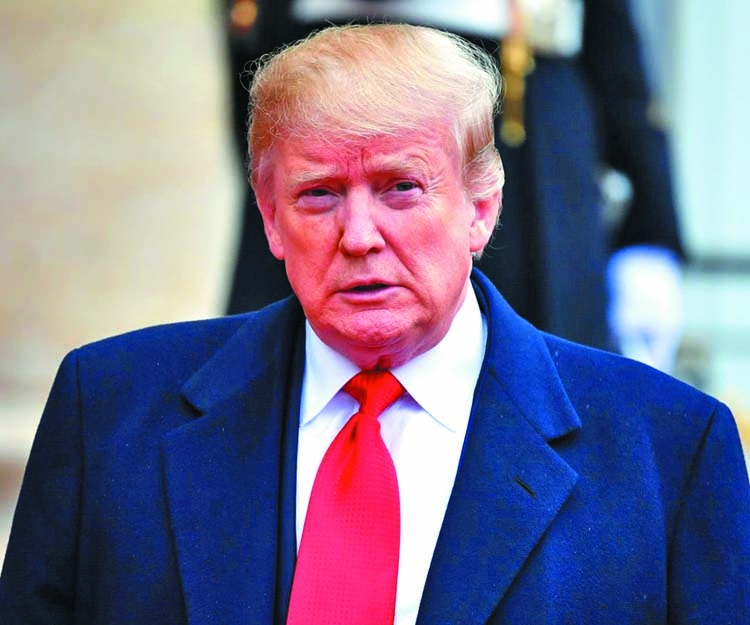Implicated in a crime, can Trump be charged?

US prosecutors have made clear they believe President Donald Trump committed a crime. But can they prosecute him? The US constitution does not answer the question, and the majority of the legal community has long accepted that the answer is "no" - that the president has immunity from prosecution while in office. But the issue has never been fully tested, and Trump could force the Supreme Court to decide it.
Federal prosecutors say the president's former personal lawyer Michael Cohen, who was sentenced to three years in jail Wednesday, "acted in coordination with and at the direction of" Trump in making hush payments to two women in violation of campaign finance laws in 2016.
But charges have not been filed, and might never be: the Department of Justice's official policy is the US head of state can't be prosecuted, and Trump's appointees run the department.That policy is rooted in a 1973 memorandum from the Justice Department's Office of Legal Counsel (OLC), written as president Richard Nixon was targeted in the Watergate investigation.
The president's responsibilities are "so onerous that a president may not be able fully to discharge the powers and duties of his office if he had to defend a criminal prosecution," it said. "The president is the symbolic head of the nation. To wound him by a criminal proceeding is to hamstring the operation of the whole governmental apparatus."
It also noted that since the president controls the Justice Department, he cannot, in essence, investigate himself. If there are serious charges, it is up to Congress to impeach him. In 2000, after President Bill Clinton avoided indictment but faced impeachment in the Monica Lewinsky investigation, the department renewed its stance.
A new memo said that indicting and prosecuting a sitting president would "prevent the executive from accomplishing its constitutional functions." Democrats in Congress are questioning that position: "I think the Justice Department needs to re-examine that OLC opinion," Congressman Adam Schiff said on CNN Wednesday.
"I don't think that the Justice Department ought to take the position… that a president, merely by being in office, can be above the law." Legal experts, including former Justice Officials, also say the policy is not so clear-cut. "Whether or not a president can be indicted or named as an unindicted co- conspirator should not be considered a settled question," Walter Dellinger, a former OLC head, wrote in a June analysis on the Lawfare website.
He noted that a grand jury named Nixon as an "unindicted co-conspirator" in 1974. "The fact that it is permissible to name a sitting president as unindicted co-conspirator, moreover, tends significantly to undermine the only argument against indicting a sitting president."
When special prosecutor Ken Starr investigated Bill Clinton in the 1990s, he was advised by legal scholar Ronald Rotunda that "it is proper, constitutional and legal for a federal grand jury to indict a sitting president." "In this country, no one, not even President Clinton, is above the law," Rotunda wrote.
Neil Katyal, a former top Justice Department lawyer, said that, logically, a president can't be immune from prosecution if he broke the law to win an election - otherwise that would incentivize doing just that. He also notes that the Justice memos do not give the president immunity from be charged with a crime by states.
In addition, he said, Special Counsel Robert Mueller, who leads the Russia collusion investigation, can request an exception to the memos - if the attorney general agrees to act against the president who appointed him.
At the same time, Katyal points out, even if a president can be indicted, he probably cannot be put on trial until he is out of office. An indictment would serve to avoid the statute of limitations on alleged crimes, enabling a trial after the president steps down. For Trump, though, that would be more incentive to run for a second term in 2021.
